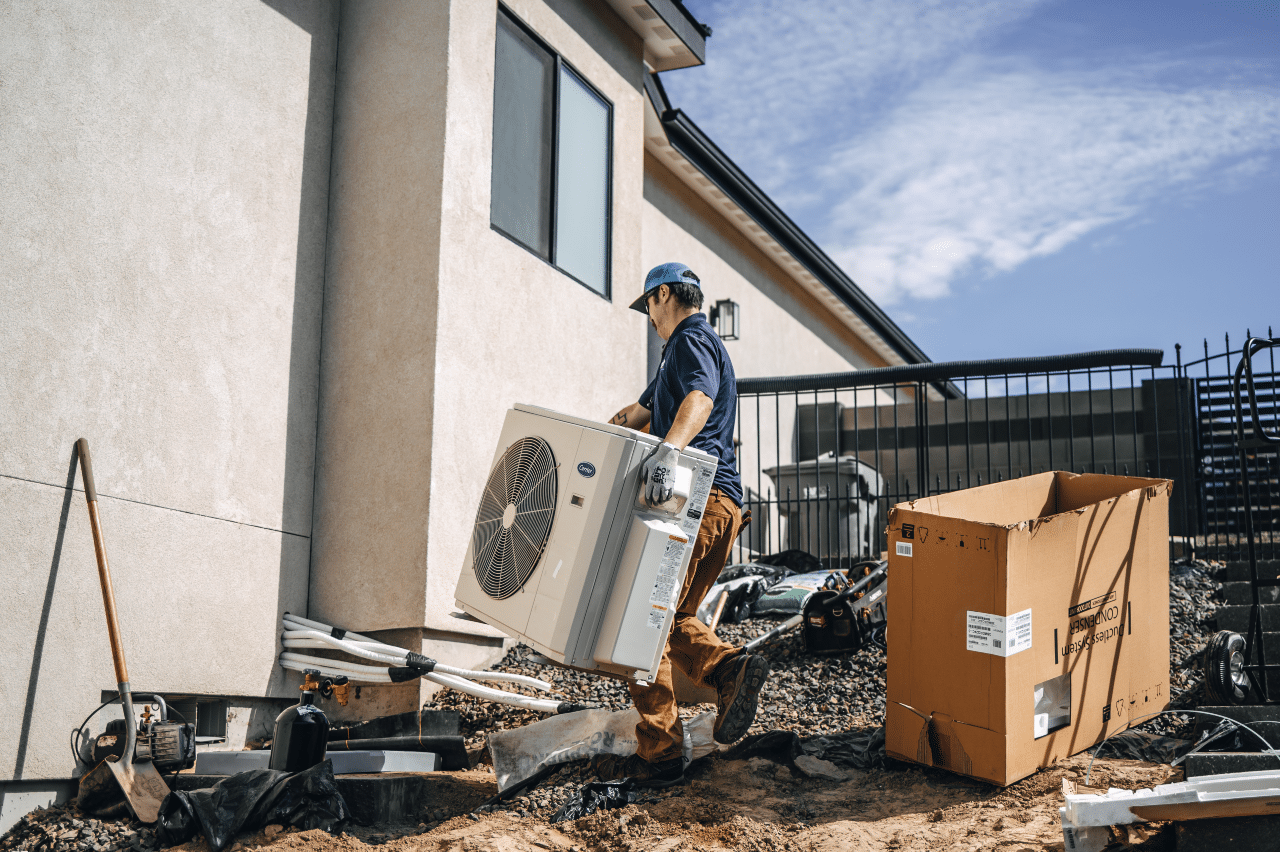How Much Does a New Furnace Replacement Cost?
The average replacement cost for a furnace varies from $1,795 to $6,290, with a majority of homeowners paying about $3,817, according to available national data. Factors that influence new furnace costs include the city where you live, cost of living there, the furnace brand, efficiency, warranties included, etc.
Keep in mind that a new furnace will ultimately save you money in heating. The challenge lies in determining what a new furnace will cost.
New Furnace Replacement Cost
Your new or replacement furnace cost also will be affected by the type of furnace you choose. For example, gas furnaces cost approximately $3,153, with electric furnaces coming with a price tag of $2,213. An oil furnace costs about $6,085.
Consult with one of our expert technicians at Apollo Heating and Air Conditioning and we will provide you with the most accurate pricing for your new replacement furnace!
Gas Furnace Prices
Gas furnaces cost approximately $3,000 on average. Gas furnaces are the most popular type of furnace, as these furnaces are built especially for harsh winter climates.
Electric Furnace Prices
Electric furnace usually comes with a price tag of around $2,000, as they are on the more expensive end of furnace types. This is because of the inordinate amount of electricity required to heat a house. Electric furnaces are especially made for areas with mild winter climates.
Oil Furnace Prices
Oil furnaces cost on average of $6,000, much higher than other furnace types. Oil furnaces have a longer history of use in the United States, however, they are not widely used today.
Furnace Installation Cost
A new furnace installation cost normally anywhere from $2,500 to $6,000 for labor and professional installation. Brand and unit size will impact these costs, but, on average, the total cost will be around $4,200.
5 Factors That Affect Furnace Costs
1. Furnace Installation
The cost for furnace installation includes the time it takes to install the furnace, the location of the installation, how difficult it is to install, and whether or not new ductwork is required for the installation. Other factors that become relevant for your installation costs are the fuel type, brand, size, and energy efficiency.
2. Furnace Efficiency
In today’s society, furnaces are significantly more efficient than the clunky behemoths that existed a few decades ago. This translates into many more available options for you to consider when purchasing a new replacement furnace.
Furnaces that come equipped with higher Fuel Utilization Efficiency Rating, or AFUE, run more efficiently and that increases the cost. However, these energy saving machines save you money in the long term on your utility bills. Consider that when you switch from a standard-efficiency furnace to a high-efficiency furnace, the cost can rise anywhere from $400 to $1,000, depending on the size and energy source.
Furnaces are rated by British Thermal Units, or BTU. A BTU is the amount of energy required to increase the temperature of one pound of water one degree Fahrenheit. It is the imperial cousin of a Calorie, which is the amount of energy needed to raise one kilogram of water one degree Celsius. The reported BTU is the amount of fuel energy the furnace uses in one hour. For instance, a furnace with 100,000 BTU/90 percent AFUE will use 100,000 BTUs of fuel per hour and convert it to 90,000 BTUs of heat for your home.
3. Energy Source
The most important choice you can make when buying a new replacement furnace is deciding the type of energy you will use to heat your home. For example, electric furnaces are cheaper but they are more expensive in energy usage than other types of furnaces. In the regions of the country where the winter is harsh, an electric furnace will likely have the highest lifetime costs.
In contrast, gas furnaces are more expensive, but as natural gas is relatively cheap, they may be the most cost-effective option during the lifetime of the furnace. Oil comes with the highest price tag.
4. Size of Furnace
As is the case with just about all consumer goods, bigger tends to mean more expensive. Your friendly contractor with Apollo Heating and Air Conditioning will perform a Manual J HVAC load test to figure out the right-size furnace for your home so you can save as much money as possible over the lifetime of the furnace.
An increase in furnace size can have different effects on a unit’s initial price, depending on the furnace’s energy source. For gas furnaces, for instance, a 20,000 BTU will increase costs about $400 for smaller furnaces and as much as $1,200 for larger furnaces. The same capacity increase for oil furnaces remains in the $300 to $600 range, no matter the unit size.
5. Do-It-Yourself Home Energy Audits
It is prudent to seriously consider the overall energy savings as you plan your furnace purchase. Home energy audits assist you when assessing the general efficiency of your home, and can also help you discover ways to save money on your HVAC equipment.
You’re advised to review the interior and exterior of your home so you can evaluate your home’s energy efficiency and identify potential energy savings. Depending on the amount of expense you are comfortable with, you can hire an HVAC professional who is energy audit certified or perform a DIY home energy audit.
More Cost-Savings Options for Home Energy Audits
If you are daunted by the $500 to $800 price tags for a professional home energy audit, you can opt to perform a home test to locate some of your home’s inefficiencies yourself.
The initial DIY home energy audit step is reviewing your energy bills. Energy Star offers a simple and useful tool, known as the Energy Star Home Energy Yardstick. This allows you to compare your energy bills to similar homes across the nation. If your bills are significantly higher than similar homes or they have been consistently increasing, you could have a problem.
Canvass your home and be sure your doors and windows are free of any drafts. Poor insulation and gaps in your windows and doors make it possible for air in your home to escape while letting outdoor air in. That costs you money.
Caulk and seal drafty windows or doors. This is one of the easiest ways to immediately begin saving energy and money!
Find Affordability and Quality for Your Next Furnace Purchase at Apollo Heating and Air Conditioning
If you are in the market for a new furnace replacement, then look to the highly trained and expert technicians at Apollo to make sure you get the perfect furnace for your home or office.
Let the talented technicians at Apollo guide you through the process to make sure you are absolutely satisfied with your new furnace!
We invite you to contact Apollo Heating and Air Conditioning by calling (509) 396-COLD



